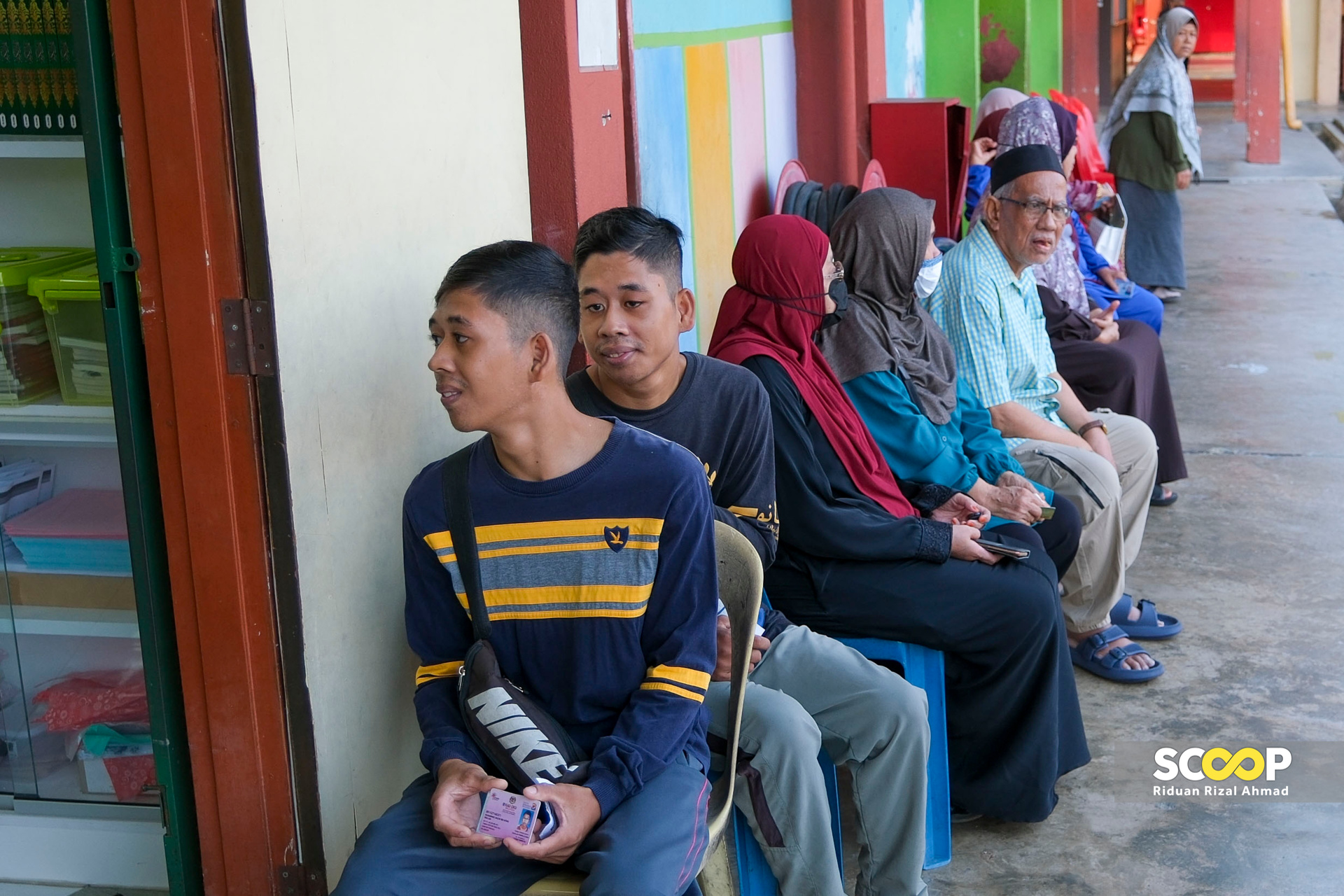KUALA LUMPUR – Perikatan Nasional (PN) was the preferred choice among younger voters, says Institut Darul Ehsan (IDE).
According to a post-election analysis shared on its Facebook page, the Selangor government-linked think tank noted that voter turnout in the recently concluded Kuala Kubu Baharu by-election showed Pakatan Harapan securing votes from individuals aged 41 and above.
“Meanwhile, Perikatan Nasional obtained votes primarily from those under 40 years old, it said.
PN secured 63% of votes from those aged 18 to 24; however, the turnout for this category was the lowest, at 53%.
“The turnout of voters aged 41 and above exceeded 60%, while the turnout of young voters was less than 55%,” the post read.
The report also noted that a substantial segment of voters, approximately 38.5% or 15,480 people, did not vote.
This resulted in a 7.7% decline in voter participation compared to the 15th general election in 2022, decreasing from 76.9% to 61.5% in this by-election.
PN also retains Malay voter support, with 56% of the votes compared to 42% for the PH-BN coalition in KKB.
According to IDE, PH-BN increased its support among the Malay community by 3% compared to last year’s state election.
Election observer G. Manimaran said PN could have emerged victorious if there had been a higher turnout of young voters, given that the coalition is still the preferred choice among this demographic as well as the vast majority of Malays.
“As a new coalition, PN still remains a preferred choice among the Malays. Some of the areas, like Batang Kali, had a huge turnout of Malay voters who cast their votes for PN,” he said.
Despite being a coalition member of PN, PAS showed limited involvement in the campaign, a factor that may have hindered PN’s chances of winning.
“If Bersatu had leveraged ties with PAS, many Malays would have come out to vote for PN, as KKB is densely occupied by conservative Malays,” he added.
Manimaran also said that low voter turnout could be attributed to a low political appetite among voters.
“Some people may not be interested or may not want to vote. Some could be out of town for work and may be far from home,” he said.
In the Selangor state election in August last year, the constituency recorded a voter turnout of 69.2%.
In the KKB by-election, PH successfully defended the seat, with Pang Sock Tao securing a majority of 3,869 votes out of the 14,000 total votes cast.
In a statement, IDE said PN still commands support from Malay voters, with the opposition coalition winning 56% of the Malay vote compared to the 42% of votes garnered by PH-BN from the community.
PH retained the support of the Chinese and there was increased support for PH from the Indian community (8%).
The Election Commission had initially predicted a 75% voter turnout; however, only 61.5% of people came out to vote.
Pang, a former press secretary to Housing and Local Government Minister Nga Kor Ming, emerged victorious over PN’s Khairul Azhari Saut, who garnered 10,131 votes. Independent candidate Nyau Ke Xin received 188 votes, while Parti Rakyat Malaysia’s Hafizah Zainudin secured 152 votes.
The by-election was prompted by the passing of incumbent Lee Kee Hiong due to cancer on March 21.
PN’s deputy chairman, Datuk Seri Ahmad Faizal Azumu, attributed their loss to low voter turnout, emphasising the importance of active participation, especially among groups like those working outside of Kuala Kubu Baharu who failed to seize the opportunity to return home and vote. – May 13, 2024

